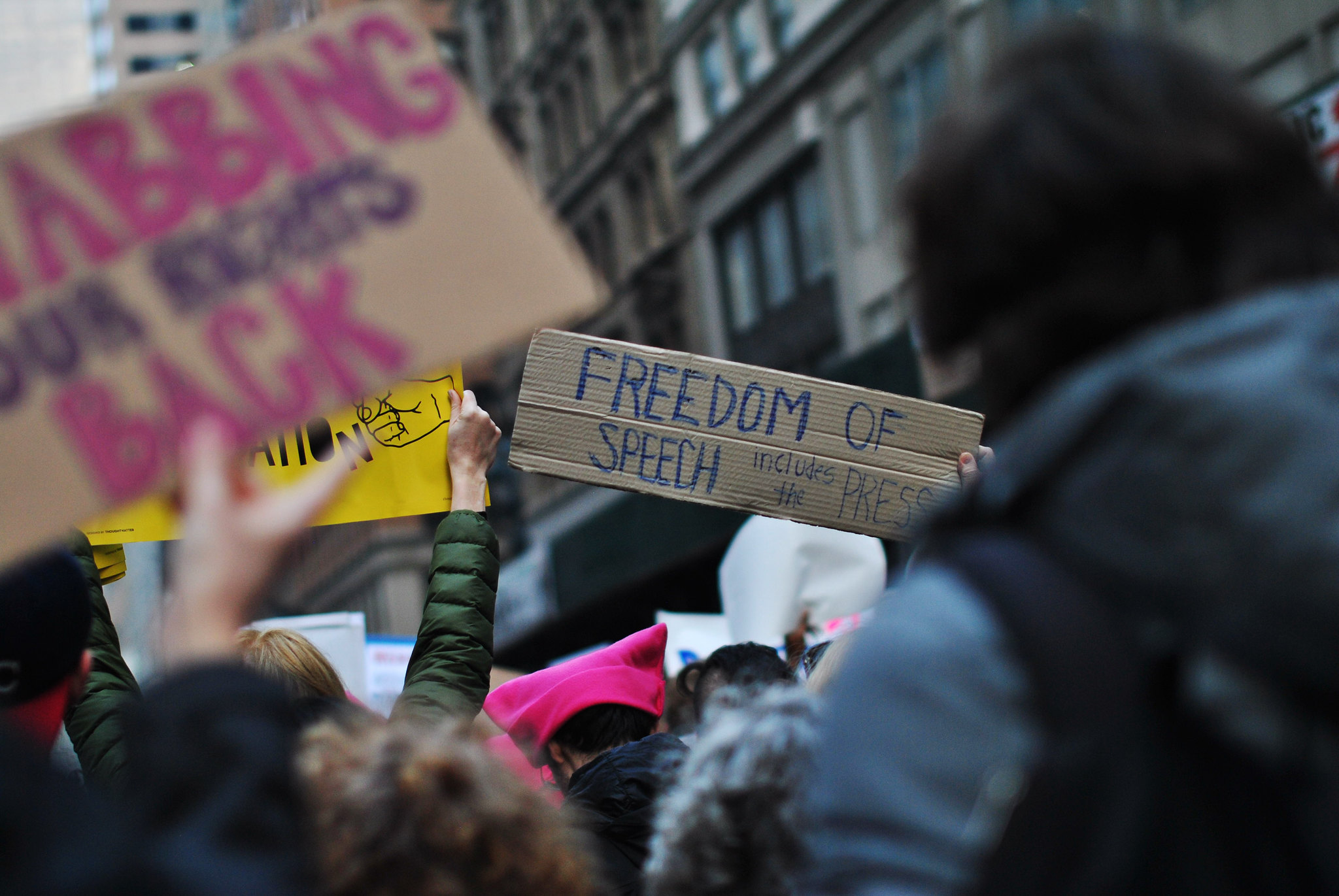
With free speech on the frontline at UK universities, Jadzia Samuel asks how far students can go when it comes to ‘cancelling’ speakers
Thanks to the likes of Piers Morgan, Jeremy Clarkson, Katie Hopkins, and other controversial figures in the public eye, the debate surrounding free speech has never been more prevalent. In universities this debate is particularly potent; in the past year hundreds of students across the country have held protests disputing various controversial figures, invited by universities to participate in debates or give speeches.
In light of this outcry, the education secretary, Gavin Williamson, has reportedly made steps which could require undergraduate students to sign contracts affirming free speech at universities. This policy would require all students to refrain from sexist, racist, and discriminatory behaviour, and also require that universities uphold these principles.
“The question we should really be asking is: how far does free speech extend?
The University of Bristol’s student union recently backed proposals to block TERFS (trans-exclusionary radical feminists) from speaking on campus, and similarly, after protests in Cambridge regarding the invitation made to Jordan Peterson, a Canadian professor photographed posing with a man wearing a t-shirt declaring ‘proud Islamaphobe’ the university back tracked on their offer. Only last week Royal Holloway University of London cancelled an event with Katie Hopkins after severe backlash. Hopkins is known for her inflammatory statements, and students argued that to allow such a woman to speak in an educational institution is to give a platform to hate-fuelling propaganda.
In all of these above cases there is a clear argument in favour of the move to ‘de-platform’ these speakers; it is bad enough that Twitter provides an online stage upon which such people can spread their divisive messages of hate, so to extend that platform to a university is almost criminal. Universities are meant to be research institutions, educational spaces in which all students and staff can feel welcome and safe. Hate speech, including advocates of such speech, should never be tolerated, far less actively welcomed onto campuses.
However, as with most contentious issues, the situation is never black and white; this ‘cancel-culture’ is constantly being pushed to the extreme. In Balliol College, Oxford University, students pushed these boundaries by starting a petition to ban Boris Johnson from the grounds, even attempting to erase any trace that the Prime Minister had attended the college, due to his advocation for a no-deal Brexit.
“This ‘cancel-culture’ is constantly being pushed to the extreme
On a similar strain, feminist speaker Germaine Greer cancelled her appearance at an event at Cardiff University in 2015. This was due to a change.org protest against her visit made due to a historical comment she made regarding trans women. Although the attempt was unsuccessful, it begs the question, do we have the right to silence anyone who has ever made a controversial comment in the past? If we immediately silence anyone who has ever made a misinformed remark in the past, we will never reach any sort of resolution and only deepen the divides. ‘Cancelling’ someone off the bat, especially for remarks made a significant number of years beforehand, only increases tensions and removes any space for growth. I am not saying that we should engage with actual hate-speakers, or ever debate anyone’s right to existence, but everyone deserves a chance to explain themselves and be educated before immediately being disregarded.
Some like to claim that the line is fine between free speech and hate speech, but this neatly evades the issue; the former is the right to speak without government prosecution, the latter is a violation of this right which entices discrimination and division. The former should be protected and upheld, the latter treated with ruthlessness. While it is clear that public figures who openly insight hate should never be given the validation that a platform on a university campus provides, neither should students feel themselves entitled to silence any speaker who comes from an alternative point of view. Universities have an obligation to protect the safety of students from marginalised communities, and students have a responsibility to engage with alternative opinions and protect the rights of free speech.
Comments